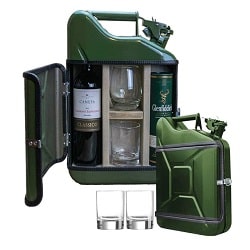For its May edition, DFNI heard from Ersan Arcan about ATÜ Duty-Free’s collaboration with Istanbul Airport, through which the retailer aims to create a scalable, airport defining, multi-brand concept that will cement the airport’s position as one of travel retail’s finest examples
The transformation of Istanbul Airport is almost complete, and it is now considered to be one of the world’s most modernist air hubs – and a true stepping-stone between Europe and Asia.
Before the Coronavirus pandemic all but closed operations, the business was bullish about the potential sales performance at the new airport, which opened in September 2018. It was expecting a 75% increase in total sales in 2020 vs 2018 (new vs old airport) and the total turnover expectation was €900m – for sub-contractors and duty-free operations at Istanbul Airport.
However, as ATÜ Duty Free CEO Ersan Arcan warns, the Covid-19 pandemic is a global crisis with global consequences. “Following a promising start in 2020, we are faced with this unseen scenario leading to no air traffic at all. Recovery or re-opening should be on a global scale before we can pronounce any real comeback in terms of business. We are experiencing a force majeure situation where we need to manage an uncertain time frame ahead,” he tells DFNI.
“Our planned scenario is that we would not have any passengers between April to end of June. We project an 18- to 20-month recovery period in order to reach 2019 figures. It seems more and more that we could face a slow re-start with limited PAX, and with a different passenger profile than usual. We will also experience different passenger behavior, where we expect to see much more cautious people at the terminals.”
Usually, Turkish Airlines contributes around 70% of the airport’s traffic, but with the airport’s most recent announcement that third runway preparations are on track to be operational by 18 June this year, there is plenty of scope for more international traffic.
Our planned scenario is that we would not have any passengers between April to end of June. We project an 18- to 20-month recovery period in order to reach 2019 figures.
In the meantime, Arcan does not expect any traffic to resume until July and has stopped all non-emergency CAPEX. “We have also made substantial cuts to our operating expenditures to weather the financial impact of this period. Our 2020 expectations are heavily disrupted due to obvious reasons, we are more focused on the recovery period planning,” he says. Rewind to when Arcan spoke to DFNI at the launch event for the airport’s Luxury Square at the end of February, he had a waiting list of 27 new subcontractors wanting to get into vacant space. “The focus on luxury will continue in collaboration with Heinemann,” he said, adding: “There is no more space now; international brands wait to open. The last of the big mono brands is Cartier, which will open at the end of Q3.

Istanbul Airport’s Luxury Square
“We are the center owner here, in collaboration with Unifree Duty Free, that operates luxury stores such as Saint Laurent and Bottega Venetta, plus a number of core duty-free stores. Then there are some sub-contractors such as Prada, Gucci, Dior, and Louis Vuitton.”
ATÜ’s strategy for both Luxury Square and the surrounding retail space is one of growing a luxury portfolio. “The brand mix depends on the performance [when we reopen], all the brands here are invested, especially local ones, that have led the project. They only want additional stores. Most have been here for one year and there are no sub-contractors willing to be out, they just want more space. So, it’s a case of assessing performance. Yes, we want to welcome more brands to join the likes of Burberry, Givenchy, and Chloe, but it’s too early to make those decisions. That mix is our choice – the focus is on maximizing the Luxury Square potential, it has almost 1km of prime retail space. If some brands do well and space becomes available, then they may be able to move into one of the stores, but at the moment, all the mono-brand locations are full.”

“The variety of brands appealing to different categories and adapted to different passenger profiles, put together with the availability of retail space, means incredible coverage and a diverse offer. In short, we appeal to everyone, every budget, every passenger taste.” When passengers do return to the airport, Arcan is sure Luxury Square will attract them not only with the quality of its design and brands, but also the quality of service. “We invested more than a year in training for staff and shop managers: the rehearsal of the operation has been done and now every element of the retail theatre has been set.”
In the first couple of months that Luxury Square traded (between December 2019 and February 2020), the relaunched retail offer attracted new and repeat customers. “We have a growing portfolio of global customers, who are looking forward to traveling through Istanbul to shop here for their favorite brands. We want to offer something new every time they shop…it should be a welcome, rather than an unpleasant change, when we introduce new brands.”

With a new normal on the horizon, Arcan says the airport’s latest retail launch puts it in a good position to appeal to a wide audience, and in time, he expects Luxury Square will contribute no less than 20% of ATÜ’s business at Istanbul Airport. “We have launched with something for every budget, from high luxury to high street. We have a wide offer, including men’s, women’s, accessories, and even kids. Our brand partners have been very supportive, backing our concept ever since we started to challenge them to think differently, we were asking them to think outside out of their usual duty-free markets.
“Our strategic approach was to think of it as a downtown department store in an airport. I’m sure with the development of other airports’ passenger traffic, this could be adapted elsewhere. The Luxury Square will hopefully become a luxury brand on its own, a retail destination that’s scalable.”








